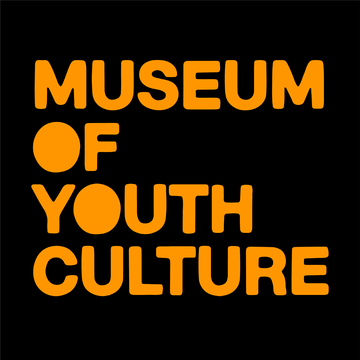
Gursharanapal Singh (Boy Chana)
Gursharanapal Singh was interviewed by Jez Collins for the Museum of Youth Culture, and talks about growing up in Birmingham, having migrated from Uganda, and the 1970s and 1980s music scene
Part of the external The Museum of Youth Culture oral history collection
About
Gursharanapal Singh, or Boy Chana, grew up in Birmingham’s diverse Lozells neighbourhood, where he embraced a mix of cultures. Gursharanapal’s family moved from Uganda in 1972, upon expulsion. Boy Chana was active in Birmingham’s music scene, blending bhangra with mainstream styles. He worked as a pirate radio DJ for the Asian community and promoted Asian music through events in the late 1990s. Today, he remains involved in the music scene, DJing and supporting local artists.
This interview was conducted as part of the ‘Birmingham Stories’ project, led by the Museum of Youth Culture. Jez Collins conducted the interview, and the full collection of project interviews is available online with the Museum. The Museum of Youth Culture is the world’s first museum dedicated to the story of teenagers and young people, collecting the scenes, styles and social movements forged by youth over the last century.
Listen to Gursharanapal talking about his pirate radio show.
Interview conducted by Jez Collins.
GS: So, the Apna Radio was a pirate radio station that was based in and around Handsworth. And I was listening to it, I thought I'd just ring them up. Rang them up, and said, yes, come and meet us. So I met them locally in a pub and said look, you know, what we sort of want to do, I want to create a radio show. Not just, you know, just create one, I just want to be on radio, basically. I've got music, I want to go on a...you know, be the young voice for the generation. They said yeah, that's fine, we can do with that. So, yeah, the pirate radio station was amazing. Thankfully I didn't actually get caught with any time. And, you know, it was based at one office, above a pub, in the back of a shop, top of a street centre, you know, in a factory where in another...other place where they were making clothes. So it was...we were stationed everywhere and anywhere, to be honest, every week was somewhere different.
JC: And this is an Asian-run, Asian music programming station?
GS: Yeah, yeah, it was Asian, it was predominantly Punjabi, and it was aimed at the Punjabi community within...in and around Birmingham. And it was called Apna Radio. And there was another one who were our kind of rival. They were based on the east side of Birmingham, they were called Sangam Radio. So we...you know, we had kind of a little bit of rivalry as well. So, yeah, it was quite cool.
JC: And what was your radio show then? What music would you be playing?
GS: My radio show was more the new bhangra music that was happening at the time. It was more youth-orientated. There were gig reviews now and then. I did get to interview a few artists on the show, but it was mainly music-based. So yeah, it was more about the new music that was coming up from new bands like [inaudible 1:52], the London bands, the London DJs play...they played their remixes. And then as I got along, from Apna Radio, the chance came to apply for Radio XL, which is the first kind of national...sorry, Midlands-wide legal station. So that...applied for that, and I got that position on there, presented the youth shows on a Tuesday and Saturday afternoons...Tuesday nights and Saturday afternoons. So yeah, you moved up from there, really. So that was my first kind of proper kind of radio job at Radio XL, which was good.
For all permissions requests for audio and video clips and their transcriptions from external collections, please contact the original project or organization.
Entry credit
Anya Amlani
